
Who do you think of when you think of someone who has been successful in their goals? Most imagine a person who is highly disciplined, smart. creative and tireless. We also tend to think of someone attractive in some way, and engaging. These are the images our minds tend to go to and, to some degree, they ring true. Yet, there are millions of nice, intelligent and winsome individuals who are not “successful” by their own definition, let alone by the sometimes cruel definitions of others. Deep down, they feel they are capable of much more, or that they have “plateaued” in their goal achievement long ago. Could this be you as well?
In fact, most of us can point to several areas of our lives that seem to be holding us back, struggles we have vowed to overcome for years, even decades without any sustained success. This is frustrating and costly on many levels. The question is why? Before we address the answer, let’s take a brief look at the latest research surrounding who succeeds and who doesn’t, by the numbers.
Top 5 goals for 2015
Research released by the University of Scranton (January, 2015) indicated the following goals were the most common for 2015:
|
1
|
Lose Weight |
|
2
|
Getting Organized |
|
3
|
Spend Less, Save More |
|
4
|
Enjoy Life to the Fullest |
|
5
|
Staying Fit and Healthy |
What is the key to successful goal-setting?
Dr. Gail Matthews of Dominican University randomly assigned study participants into five groups:
• Group 1 was asked to simply think about the business-related goals they hoped to achieve and to rate each goal by several measures including perceived difficulty and past experience with similar goals.
• Groups 2-5 were asked to write their goals and then rate them in same way as Group 1.
• Group 3 was also asked to write action commitments for each goal.
• Group 4 had to both write goals and action commitments and also share these commitments with a friend.
• Group 5 did all of the above plus sent a weekly progress report to a friend.
How did they do?
Group 1 Accomplished 43% of their goals.
Group 4 accomplished 64% of goals,
Group 5 were the most successful, accomplishing 76% of their goals.
(Source: http://www.dominican.edu/dominicannews/dominican-research-cited-in-forbes-article)
What can we immediately apply from the above findings to double our chances of success in 2015?
Is there a good reason to believe you will achieve your 2015 goals in the nine months remaining? The answer is clearly, “it depends.”
- Writing down your goals will help, sharing your goals with a friend will help you even more. But, partnering to be accountable with someone on an ongoing basis will give you 33% more likelihood of success.
- If you haven’t written down your goals formally, we can guess from the above data, that you have a far less than 43% chance of success. One study put this figure as low as 4%.
- If you have an accountability partner to review your goals with you frequently throughout the year, your chances swell to 75%.
- Those of us who are older may need even more accountability to counteract the mood dip we may experience in mid-life and the far lower rates of goal success (around 14%.)
Key Fire Your Excuses principles to help you set better goals
Let’s return to our opening discussion–who are those who do the best at achieving their goals? What we know now is those who are connected and accountable to others enjoy the best odds of success.
For this reason, we continually urge our audiences and coaching clients, “Don’t try harder in 2015, get more connected.” If you have had the same goal for 10 years, say to lose that 10-15 pounds, sorry to say, there is a near zero chance you will achieve it this year based on willpower alone. The same goes for finally finding that dream job. You will need to reach out to others who are living the life you seek or who are actively holding themselves accountable to others weekly to consistently perform at a higher level. What we have noted over the years is that willpower will sustain you for three months, six months if you are extraordinary, but rarely longer. Studies show that within two years, nearly all who rely on willpower alone will have returned to their baseline weight or lifestyle.
We also challenge our readers and audience members to “Walk the last mile of denial!” It is so easy to go 90% of the way on your own but, due to your blind spots or well-worn excuses, leave that last 10% wide open. Result– self-sabotage, failure and discouragement.
Lest we be too hard on ourselves, our lifestyle “set points” can become very entrenched and often protect us to a degree. Powerful emotions, often unconscious to us, are at play, not just our resolve. Each of us have skills and practice disciplined behaviors we routinely perform that others struggle to accomplish or avoid all together. And, we have some areas that others do not struggle with but have been our challenge for as long as we can remember.
Give yourself a hearty “high five” for your strengths and disciplines, but be completely honest about those areas that have little chance of changing without finding support. Everything changes when you admit, despite knowledge, degrees, position, income or talents, there are several big areas that you just can’t yet “muscle through.”
Stop trying to be a will power achiever–reach out for help. Buckminster Fuller said it best: “Environment is stronger than will power.” Bottom line: It is far more effective to change your social support circle than to muster up more will power.
Now that you know the facts, the rest is up to you. Will you “double-down” trying harder or will you reach out and change your environment this year? If we can help you in any way achieve your goals in 2015, let us know.
Dr. Bill & Dr. Marcus







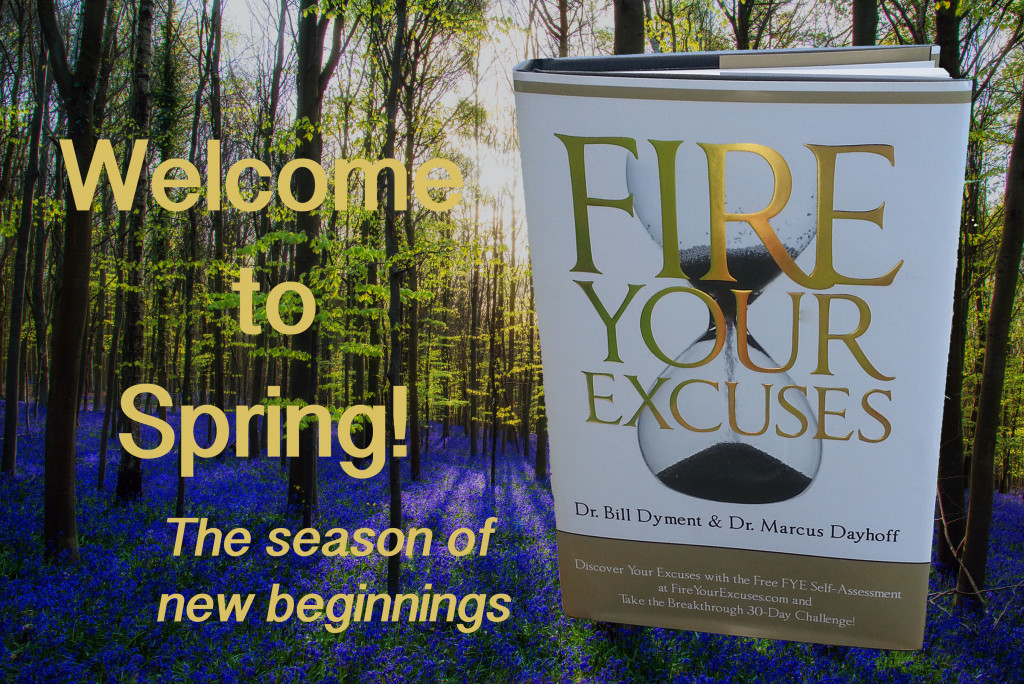
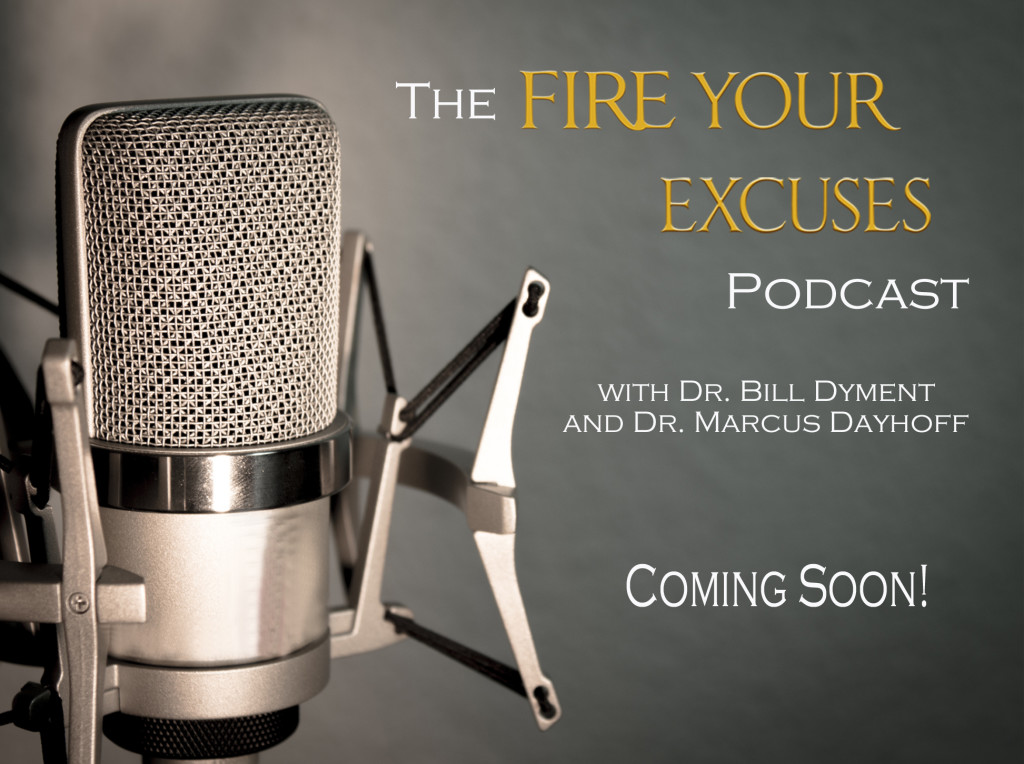










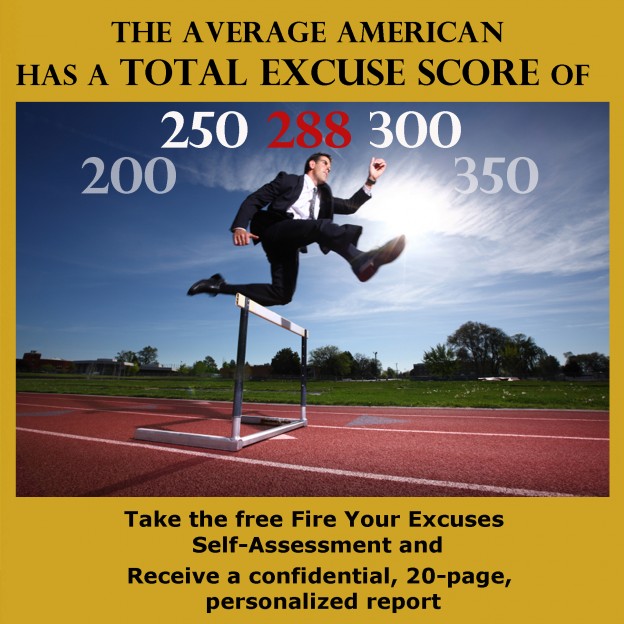
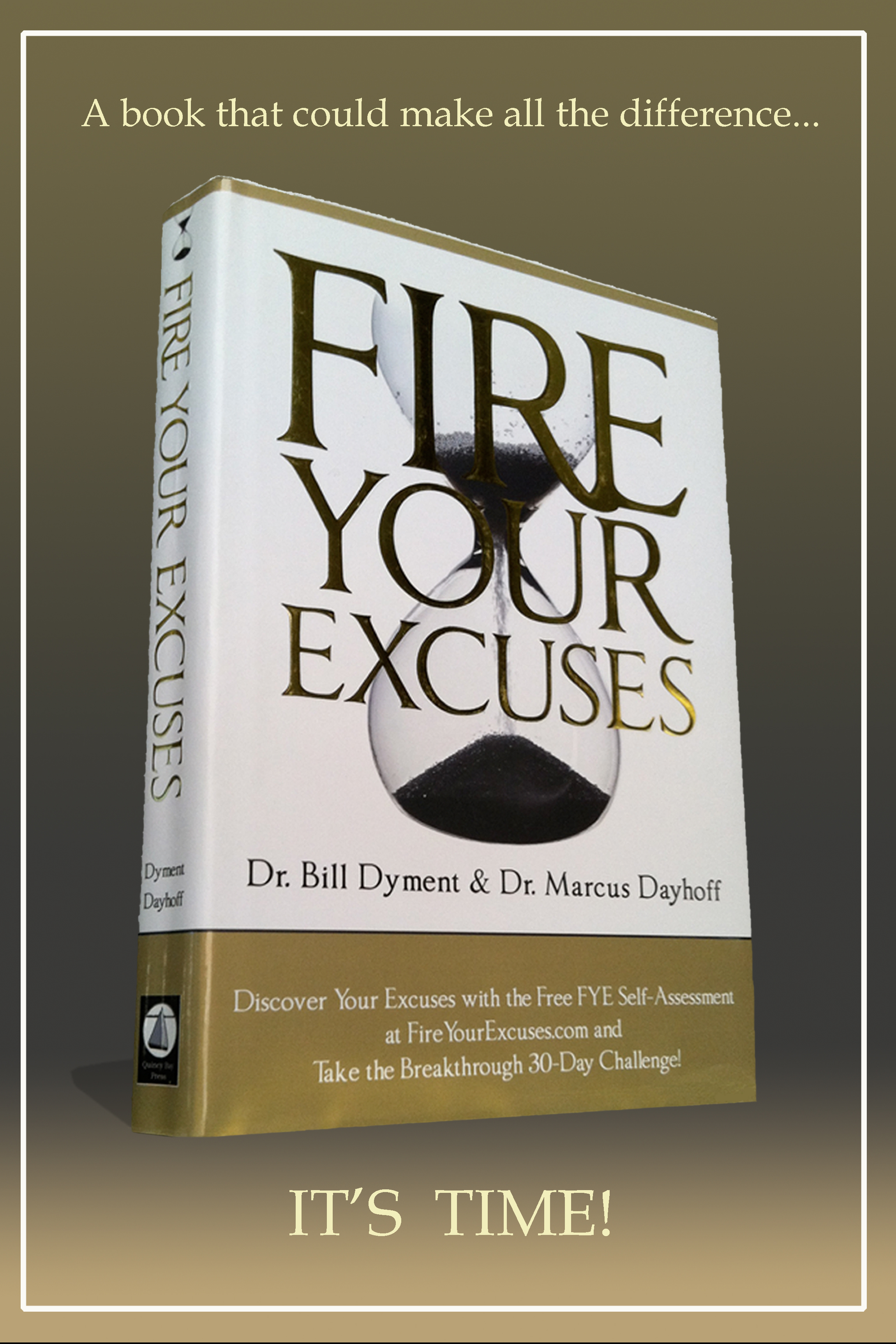

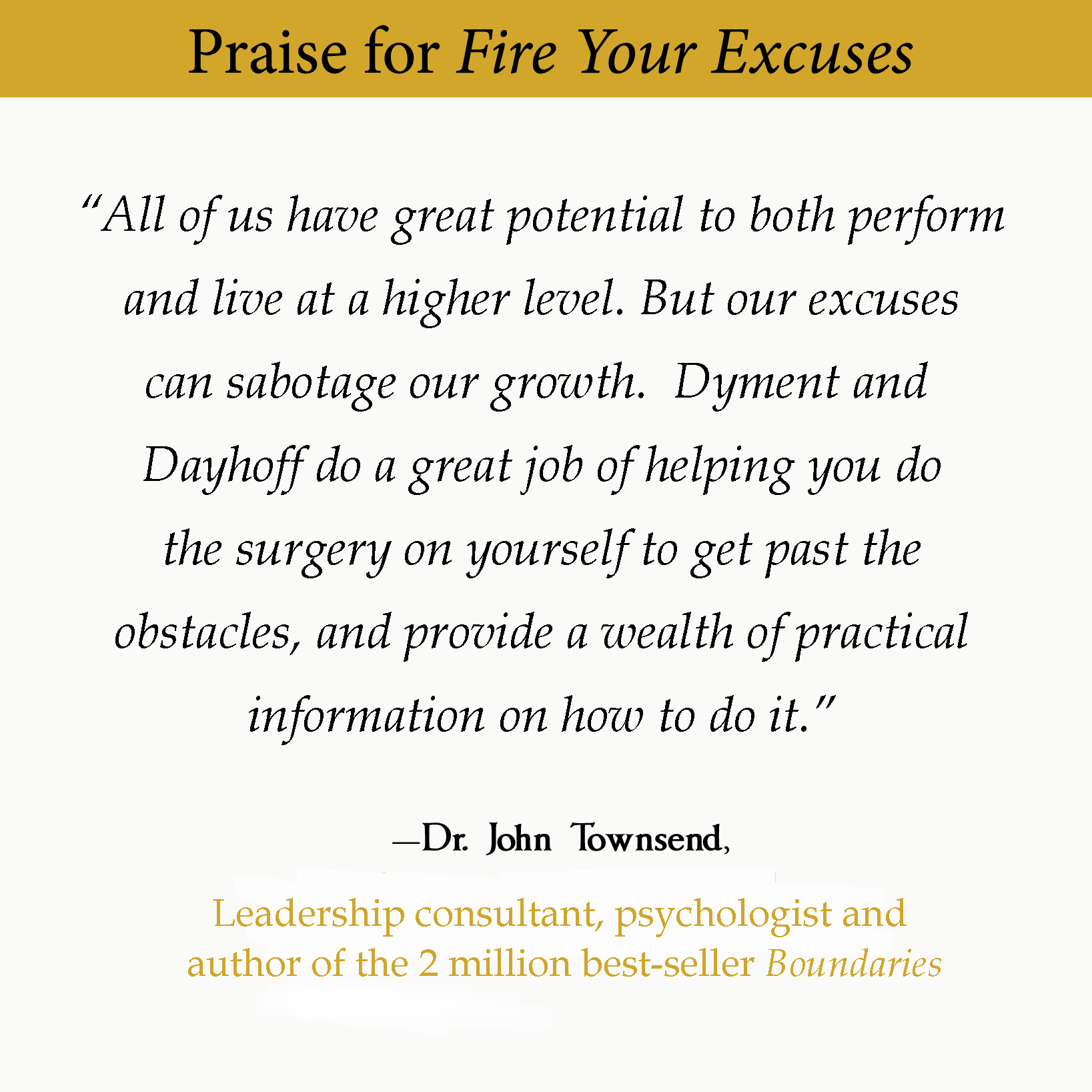
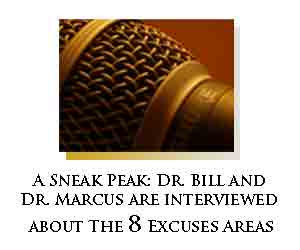

 Fire Your Excuses™ is delighted to be able to support World Vision’s Well Projects by donating 10% of all gross income to assist the people of Malawi, Africa, with clean water. When you enroll in a Fire Your Excuses™ coaching program, attend one of our seminars, or order our book, you are also giving the gift of life—fresh water to needy communities in Malawi, Africa, the world’s sixth poorest country.
Fire Your Excuses™ is delighted to be able to support World Vision’s Well Projects by donating 10% of all gross income to assist the people of Malawi, Africa, with clean water. When you enroll in a Fire Your Excuses™ coaching program, attend one of our seminars, or order our book, you are also giving the gift of life—fresh water to needy communities in Malawi, Africa, the world’s sixth poorest country.